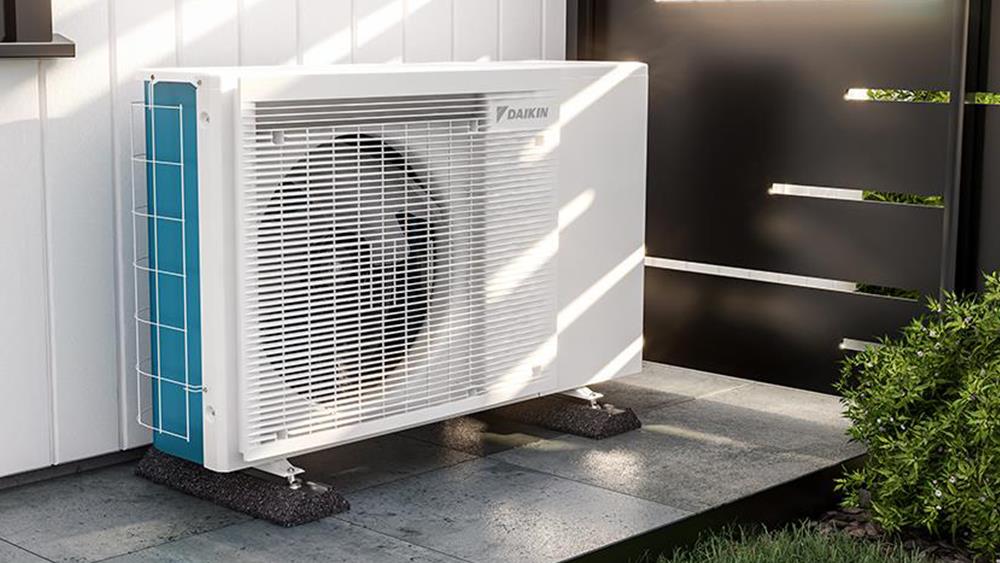

If the UK is to achieve its goal of net-zero by 2050, we need to ensure that we do not fall behind other European countries in the reduction of carbon emissions, something which is already happening. The current shortage of heat pump installers across the UK mean that there is a growing opportunity for heating professionals to expand their customer offering into this new area.
Presently, residential properties account for around 35% of the energy usage in the UK and 20% of carbon emissions. In order to address these figures, homes must be made more energy efficient and take advantage of the renewable and low carbon solutions for both heating and hot water.
In June 2022, new Approved Document L standards came into force that stated CO2 emissions from new build homes must be 30% lower than 2013 standards. These standards are set for further increases upon the introduction of the Future Homes and Buildings standard, which will require homes built from 2025 to have a carbon footprint that is at least 75% less than one built to 2013 requirements.
It is important to note, that while new properties are being addressed through legislation, 80% of the homes we live in by 2050 will have already been built. This means that the vast majority of the UK’s 27 million homes will need to be upgraded to utilise low carbon heating solutions. The incorporation of heat pumps into these homes will undoubtedly play a major part in the upgrade efforts. Generating 3 to 4kW of heat for every 1kW of electricity used, heat pumps achieve as much as 400% efficiency under optimum conditions, compared to around 90% efficiency for a gas boiler.
Demand for heat pumps will continue to grow steadily over the next few years, however there is a shortage of installers. According to estimates by the Heat Pump Association, there are an estimated 4,900 heat pump installers in 2022 but, by 2030, the UK will need well over 50,000 to ensure demand for heat pumps is met. This highlights the opportunity to upskill early to be able to add this offering to customers.
There are some key differences between heat pump technology and traditional heating systems, but it is still fairly straightforward for an experienced heating engineer to apply their knowledge to the qualifications needed to install, commission, and maintain heat pumps. While heat pumps do contain refrigerant that must be carefully managed, monobloc air source heat pumps do not require F-Gas certification to install as the refrigerant is sealed within the unit. Essentially, this means that only water pipe connections are required between the property’s heating system pipework and the heat pump unit.
For those heating professionals that are interested in being able to include heat pump services to their customers, the first thing to do is to find appropriate training. Heat pump manufacturers are often the best port of call to start with when searching for these courses. At Daikin, we offer free product training sessions that provide an overview of how the heat pumps work, installation, step-up, and system controls. There is then the option to complete further training sessions to gain more advanced knowledge. These courses are available through our nationwide network of training centres so installers can access the training at a location that is convenient.
Expanding services to include heat pump solutions would be better attained sooner rather than later. Over the next three years, the Boiler Upgrade Scheme will provide funding to help subsidise the cost of heat pump installations. This is open to homeowners across England Wales, and offers a grant of up to £5,000 towards the overall cost of a new heat pump installation. Eligibility for the grant requires the installation to be conducted by an MCS-accredited installer. While additional training and assessments will be required to achieve this accreditation, some manufacturers will actually provide some assistance with the entire process, including third party accredited training that counts toward and MCS accreditation.
Partnering with a manufacturer, such as Daikin, with decades of experience in heat pumps can have real benefits for installers. This includes expert technical and commissioning support, which is especially important when completing the first installations.
The increased adoption of heat pump systems as the UK pushes towards net-zero offers many opportunities for heating installers to grow their businesses. The training and support offered by manufacturers can help make the move into this new area easier and more profitable.
To find out more about Daikin Altherma hybrid heat pumps and training opportunities, visit www.daikin.co.uk.
If you'd like to keep up-to-date with the latest developments in the heating and plumbing industry, why not subscribe to our weekly newsletters? Just click the button below and you can ensure all the latest industry news and new product information lands in your inbox every week.